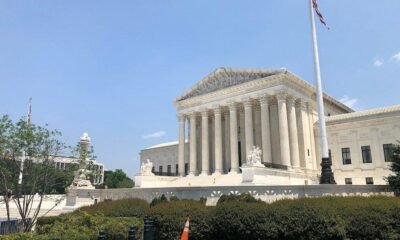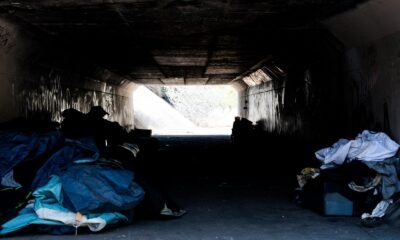crime
Santa Cruz: Tucson’s Camping Ban in Washes Faces Scrutiny

Tucson City Councilmember Lane Santa Cruz addressed the council during Tuesday’s study session, voicing his dissent on recent ordinances concerning camping in public spaces. While he was unable to cast a vote during the regular session due to illness, his position remains clear. Santa Cruz strongly advocates for parks as open, green spaces available to all, expressing concern over their transformation into makeshift shelters.
He criticized Section 11-51 of the proposed ordinances, stating they do not contribute to genuine solutions for homelessness. “Currently, we lack sufficient low barrier shelter beds,” he emphasized. Rather than alleviating the issue, such policies merely reallocate individuals to other locations, including neighborhoods and transportation hubs. He particularly noted the dangers of implementing these measures during Tucson’s intense summer heat.
Santa Cruz pointed out the city’s inadequate resources for consistent enforcement of the ordinances. “Enforcement without support services is ineffective,” he argued. He cited the closure of Santa Rita Park as a case study, where limited shelter options led to displacement into nearby areas without viable alternatives.
What Tucson needs, according to Santa Cruz, is an increase in accessible shelter facilities, ongoing outreach, and expanded mental health and substance abuse treatment. “Criminalization of homelessness is not the answer,” he insisted. He stressed that removing individuals from spaces they occupy—such as washes—without providing safe alternatives undermines human dignity.
Homelessness, he stated, stems from policy failures rather than a lack of enforcement. “We can’t arrest our way out of poverty or crises,” he warned, highlighting the need for long-term solutions rather than temporary fixes.
Santa Cruz also addressed the broader issue of local governments grappling with a humanitarian crisis. He criticized state and federal failures to adequately fund housing and social services, placing undue pressure on cities like Tucson. “It’s unsustainable and unfair,” he said, stressing that at every level, improvements are necessary.


















